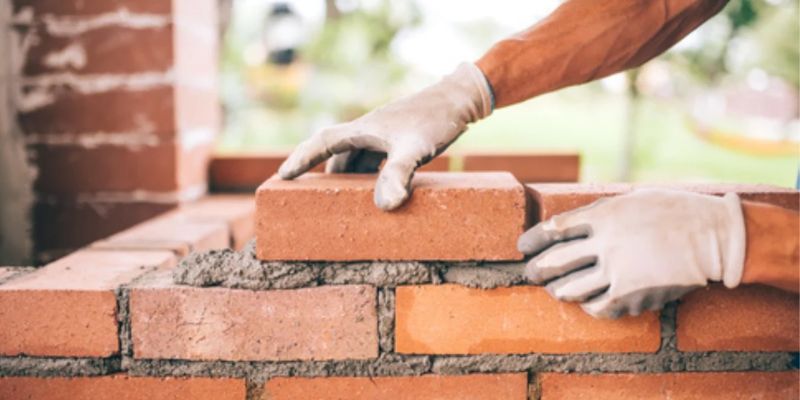For centuries, masonry walls have been an essential component of architectural construction. Buildings of all kinds benefit from the strength, durability, and aesthetic appeal of these sturdy structures. You’ve come to the right place if you want to learn about the materials used to construct masonry walls. We will examine “What Are Masonry Walls Made of?” in this comprehensive guide, shedding light on the intricate details that give these walls their durability and aesthetic appeal.
What Are Masonry Walls Made of?
Scroll down to get important details about the masonry walls:
Bricks: The Underpinning of Masonry Walls
Blocks are the essential structure blocks of stone work walls. They have been used for thousands of years by ancient peoples like the Egyptians and Mesopotamians. Most bricks are made of clay or shale that is shaped into rectangular pieces and fired to harden them. The resulting bricks are resistant to weathering and have excellent compressive strength. They come in a variety of colors, textures, and sizes, giving builders and architects a lot of options for creating the look they want.
Mortar: The Magic That Binds Everything
While blocks structure the really primary part of stone work walls, mortar goes about as the limiting specialist that holds them set up. Mortar is a combination of concrete, sand, and water, painstakingly proportioned to accomplish the ideal consistency and strength. Mortar hardens and forms a strong bond when applied between bricks, ensuring the masonry wall’s stability and integrity. Mortar likewise assists with dispersing loads equitably across the whole wall, upgrading its in general underlying limit.
Substantial Blocks: Adaptability and Strength
Notwithstanding blocks, brick work walls can likewise be built utilizing substantial blocks. Concrete blocks are made from a mixture of cement, aggregates (like sand or gravel), and water. They are larger than traditional bricks. Because they come in a variety of sizes and shapes, these blocks can be used in a variety of ways. Concrete blocks are suitable for use as load-bearing walls in residential and commercial buildings due to their high strength. Due to their low price and simple installation, they are frequently chosen.
Stone: Timeless Elegance
Stone is another common building material for masonry walls. Ashlar is a type of natural stone that can be cut and shaped into individual pieces like granite, limestone, or sandstone. After that, mortar is used to join these pieces together to create stunning and long-lasting masonry walls. Stone walls have an elegant and timeless look that is frequently associated with historic and expensive architectural designs. They can endure outrageous weather patterns and require negligible upkeep, pursuing them a famous decision for both inside and outside applications.
Reinforcement: Adding Strength and Stability
To further enhance the strength and stability of masonry walls, reinforcement elements may be incorporated. Reinforcing bars, also known as rebars, are typically made of steel and are placed within the mortar joints or cores of masonry walls. The addition of reinforcement helps to distribute tensile forces, making the walls more resistant to cracking and deformation. Reinforced masonry walls are commonly used in areas prone to seismic activity or high wind loads.
Surface Treatments: Protecting and Enhancing
Surface treatments play a crucial role in preserving the appearance and longevity of masonry walls. These treatments can include coatings, sealants, or paints that protect against moisture penetration, UV radiation, and other environmental factors. They not only provide a protective barrier but can also enhance the aesthetic appeal of the masonry walls by adding color, texture, or a polished finish.
Wrap Up
In conclusion, masonry walls are composed of various materials that work together to create structures that are both resilient and visually appealing. Bricks, mortar, concrete blocks, stone, reinforcement, and surface treatments all contribute to the strength, durability, and aesthetic qualities of masonry walls.
By understanding the materials used in masonry wall construction, architects, builders, and homeowners can make informed decisions when it comes to designing, constructing, and maintaining these remarkable structures.

